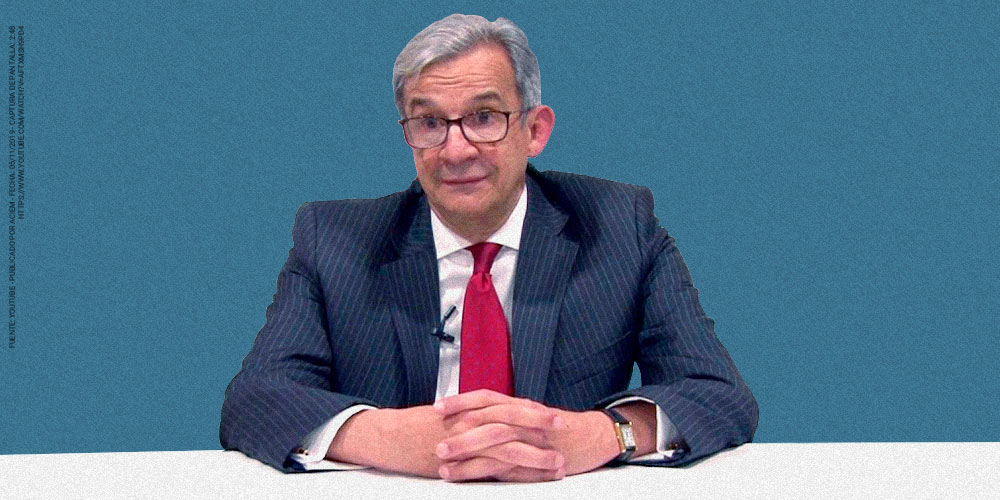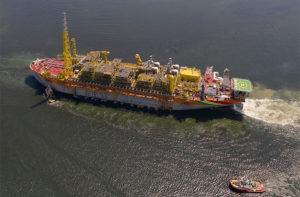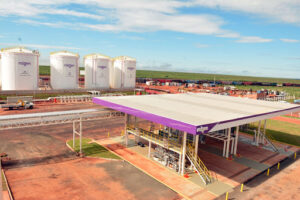
(Argus, 28.May.2020) — Luis Pacheco is chairman of a parallel board trying to exert control over the future of Venezuela’s state-owned PdV. Appointed by the National Assembly led by opposition leader Juan Guaido, Pacheco and other key members of Guaido’s team are fighting to keep the company’s US refining arm Citgo out of creditors’ hands. In this interview, edited for length and clarity, the former PdV executive discusses the board’s vision and strategy.
The ad hoc board of PdV was first named in February 2019, with a mandate to prepare to rebuild Venezuela’s oil industry if President Nicolas Maduro were to lose power. How does the board operate on a day-to-day basis? How often does it meet and what are its priorities?
All of the members of the ad hoc board live outside Venezuela and in separate locations. So even in pre-Covid-19 days, the board had virtual meetings at least once a week or more if the situation called for it.
The mandate of the board is basically to rescue and take control of PdV’s overseas assets, in particular those in danger of falling into the hands of creditors of the Maduro regime because of the inability of the regime to face its obligations or simply because of neglect. We have been able to fulfill that mandate in the US, in particular the Citgo chain of companies, with the invaluable help of the special attorney general’s office, led by Jose Ignacio Hernandez.
The focus in the US is, of course, helped by the support of the American government, which has given us the legal room in which to defend these assets. Everything we do is framed within the Venezuelan legal system and regularly reported to the National Assembly.
The board has endorsed changes to Venezuela’s hydrocarbons law that would streamline PdV and open the industry to more investment within a regulatory framework reminiscent of Mexico’s 2014 energy overhaul. What is the status of this proposal and what are the next steps in the process?
The board has collaborated with the National Assembly in promoting the need for legal reform if the country is to take proper advantage of its resource base and the opportunity window that still remains open for fossil fuels.
Venezuela woke up to the need of opening its oil and gas industry well before Mexico and needs to build upon that experience.
We understand that the energy and petroleum commission (of the National Assembly) has started to examine a blueprint of a new law in conjunction with amendments to the existing law. We hope that the two projects will be merged and give the country modern legislation that will frame the conditions to promote investment from incumbent as well as new players in the Venezuelan basin.
If we do not create the right conditions, private investment will not return and the state-owned company is in no condition to pull its weight for a number of reasons.
What will it take in terms of time and investment to restore PdV’s upstream and downstream operations?
This is a moving target, since the amounts will depend on the starting point. The industry, as is public knowledge, is in a sorry state of disrepair, with decreasing levels of production, ruinous infrastructure and in dire need of technical and managerial know-how. We estimate that the industry will need to invest $100bn-$150bn in the next decade to return to its activity levels of 20 years ago, a huge undertaking by any standards.
As a former top executive of PdV in Caracas, what lessons did you bring to the reform proposal from the “apertura” years? How can Venezuela avoid the fate of Mexico, which has suspended key features of its overhaul?
The first and most important one is that bringing new private actors to the scene always enriches the sector, technologically, financially and stirs the complacency of the state-owned company by introducing competition.
On the other hand, experience also tells you that countries that are willing to let private capital in to what they consider their “strategic industries” during times of hardship, will always be tempted to revert the “opening” in times of price bonanza.
Therefore one needs to design the fiscal and royalty system such that there will always be a state take that the nation, and in particular the political establishment, regards as fair, without jeopardizing the returns of the investor – a difficult but surely a possible balance.
The Guaido authority’s reconstruction plan is anchored on a recovery of the oil industry. But at current prices, Venezuela’s oil is not economic to produce. How worried are you that oil prices will not substantially recover before a future transition? Is there a Plan B?
We need to plan on the basis of a long-term horizon, that is the nature of the industry, and not be distracted by today’s price. Because Venezuela is a mature basin, with a lot of brownfield projects, under the right fiscal conditions we will have competitive advantages in a crowded space. In a volatile market, robust projects will take precedence and we believe Venezuela can offer that robustness.
A focal point of the PdV ad hoc board’s strategy has been the defense of Citgo from creditors. Following the 22 May court ruling in Delaware that cleared the way for the sale, how concerned are you that the only defense of the asset now lies with the US administration’s actions? Are you preparing for a scenario of losing the asset? What would such a sale mean for the Guaido authority’s reconstruction plan?
First and foremost one needs to understand that the defense of the nation’s assets is important for all Venezuelans and not only to a particular faction of the political spectrum.
Second, if the interim administration in Venezuela had not taken upon themselves the defense of the assets, those would have been long gone by now.
Also, one needs to remember that all these legal claims and demands are the consequence of either financial wrongdoing and or expropriations by the Maduro/Chavez administrations. It is part of the legacy of mismanagement and corruption that, inevitably, all Venezuelans have to bear. And also, remember that the Crystallex case was already awarded before the interim government took charge.
The special attorney general’s office, the ad hoc board and PdV Holding will continue the defense of the nation’s interest. There are still some legal levers we can pull in Delaware and we will continue that process, whilst preparing to minimize the impact on the asset.
What is the PdV ad hoc board’s current stance toward PdV 2020 bondholders? Are negotiations taking place? The Guaido authority has said this debt is “invalid”. What are the implications for Venezuela’s future access to capital?
As you know, the PdV 2020 bonds were declared illegal by the National Assembly from the beginning, for a number of reasons. So, I see no other implications for future access to capital but the need for doing things the right way.
Since the ad hoc board came into being, we have had on and off conversations/negotiations with the bondholders – directly and through lawyers, but they have always been adamant that the only solution that they were willing to consider was the full payment.
On the other hand, because of the National Assembly resolutions, the ad hoc board was, and is, under the obligation to maintain the position that any negotiation needs to recognize the invalidity issue.
Last year, when those conversations were not making enough progress, and before the contingency of losing the PdVH Citgo shares that were illegally used as collateral, we were forced to sue in New York court over the invalidity of the bonds.
Since we entered the litigation, we have continued to ask the bondholders, through our lawyers, to negotiate, and have put some options on the table, but up to now they remain unresponsive and have shown no apparent interest. But we will continue trying, since good faith negotiations have always been our intention.
The Guaido authority has nominal control over Citgo but it has not been able to address the fuel shortage in Venezuela. Has the board sought US Treasury permission to tap Citgo revenue to pay salaries or deliver gasoline to Venezuela?
Citgo was put against the ropes by the actions of the Chavez/Maduro administrations. Its shares were illegally pawned to Rosneft and to the PdV 2020 bondholders. The company is under investigation by the US Justice Department because of alleged illegal acts that occurred in 2013-18.
Citgo operates under a license from OFAC (US Treasury’s Office of Foreign Assets Control). As an affiliate of a sanctioned company it is limited in what it can and can not do. Let us not forget that Citgo is a company that operates under American laws and regulations.
Moreover, the debt burden that the new management inherited, which is significant and with very restrictive covenants, does not allow the declaration of dividends in the near future, which by the way is the only legal way to direct funds through the ownership structure.
Again, that is a consequence of the ill-advised use of Citgo by the Maduro administration to siphon out funds to Venezuela via debt, leaving the company with obligations that need to be restructured and complied with, which is something that has occupied a lot of the time of the new management.
If one adds to the mix the present oil market crisis, one can begin to understand the restrictive boundary conditions that govern Citgo’s actions.
With that legal and financial straitjacket in mind, necessary for the long-term survival of the company, giving away gasoline is beyond the realm of present day possibilities.
What is the board’s position on the Iranian gasoline shipments to Venezuela?
A desperate measure by a rogue regime. A painful consequence of the sorry state of a once-thriving oil industry, destroyed by 20 years of wrong policies and incompetence.
What do you wish you knew in February 2019 that you know now?
That the oil price was going to collapse as a consequence of a pandemic-related lockdown.
***

